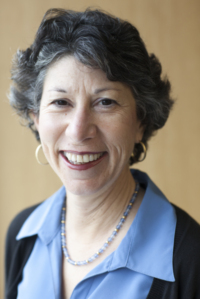Law professor works to improve access to legal representation
The number of Wisconsin households facing legal troubles without representation continues to grow in a weakened economy. That, combined with cuts in government services, has left thousands of low-income Wisconsin households without legal services, says Professor Marsha Mansfield of the University of Wisconsin Law School.

Mansfield
Equal access to justice is an issue that concerns the whole community, not just the court system, Mansfield says.
“People should care as much about their neighborhood’s legal health as they do about its medical or environmental health,” Mansfield says.
Mansfield, the director of the Law School’s Economic Justice Institute, serves on the Wisconsin Access to Justice Commission, created by the Wisconsin Supreme Court and tasked with expanding access to basic civil legal services for those who can’t afford them. The group will meet Thursday, Feb. 28 with the Supreme Court to report on its activities over the past year, especially its work to restore the funding for civil legal aid that was removed from the state budget.
Unlike criminal defendants, who have a constitutional right to counsel, the courts rarely appoint attorneys for civil litigants. For some, the stakes are high — resulting in people losing their homes or custody of their children.
“A lack of access to legal advice or advocacy can have catastrophic consequences that are far more costly than the provision of legal aid at the outset,” Mansfield says.
Additionally, the high volume of unrepresented litigants, who are often unfamiliar with court procedures, makes the court system less efficient by slowing down proceedings significantly.
“People should care as much about their neighborhood’s legal health as they do about its medical or environmental health.”
Marsha Mansfield
Along with Mansfield, UW Law alumni Hannah Dugan, Maurice Rice and Margaret Vergeront serve on the commission’s 17-member governing board. Last year, it held hearings in six regions around the state to identify legal needs and explore possible solutions.
Part of the answer lies in raising public awareness about the issues, Mansfield says. The commission is also examining ways to streamline court services, develop new resources, and preserve and restore legislative funding for civil legal services.
The UW Law School can help, too, she adds.
“The Law School is a huge part of the puzzle, because our clinical programs allow for flexibility and creativity in our approach to community service,” Mansfield says. “In the supportive environment of a clinic, students learn to problem-solve and advocate on their clients’ behalf. At the same time, litigants benefit from our students’ energy, passion and knowledge.”
Tags: Law School



